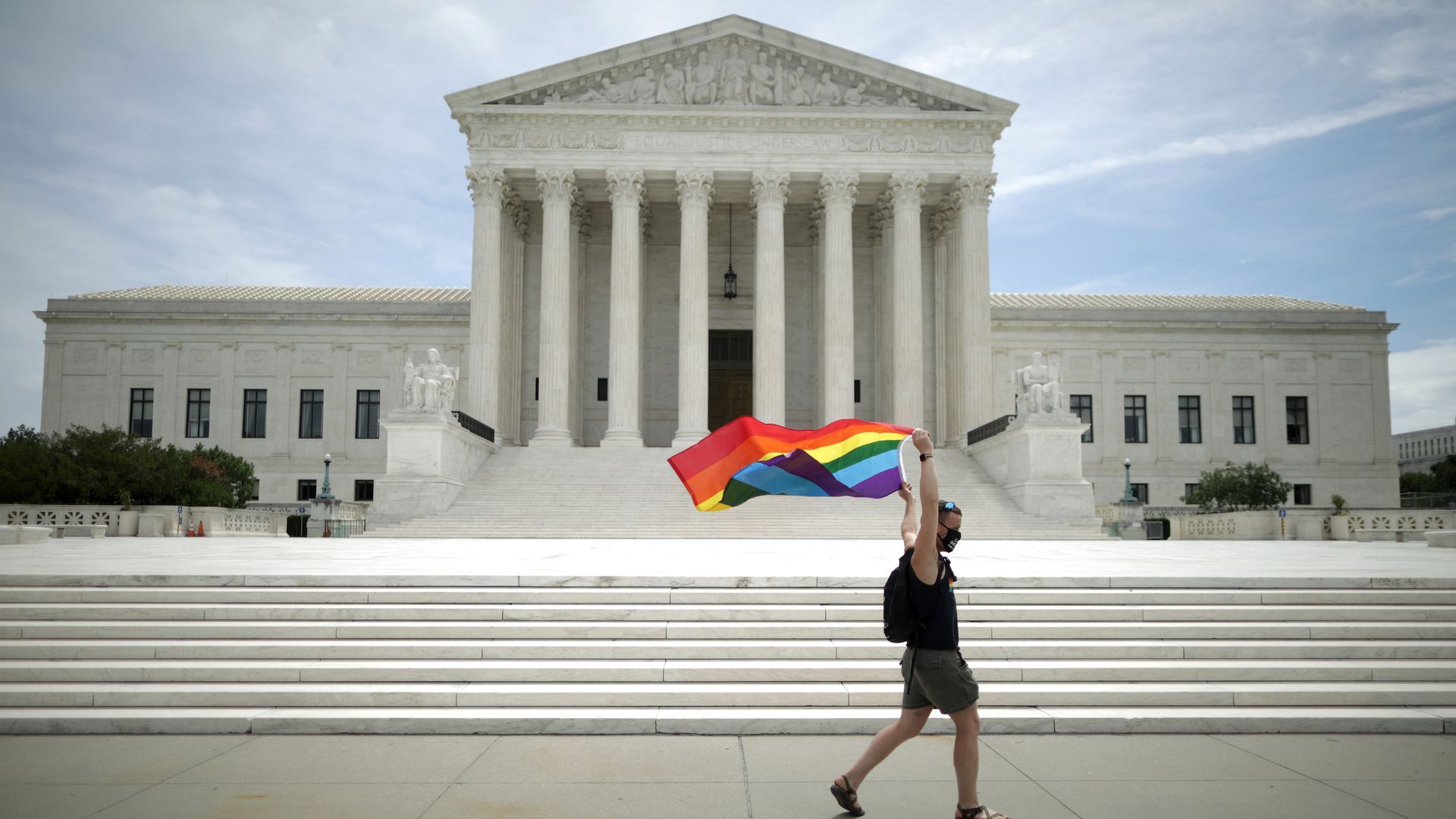A Supreme Court surprise
Add Axios as your preferred source to
see more of our stories on Google.

Photo: Chip Somodevilla/Getty Images
America now has a 5th major Supreme Court ruling on LBGTQ rights, this time based on Title VII of the Civil Rights Act of 1964.
Why it matters: Before today's ruling, only about half of U.S. states had comprehensive laws that protect people from being fired based on their sexual orientation or gender identity.
- Title VII explicitly prohibits discrimination based on "race, color, religion, sex, or national origin," but it did not specifically name sexual orientation or gender identity as protected classes.
The 6-3 decision's majority opinion was authored by Trump-appointed Justice Neil Gorsuch. (Justices Alito, Thomas and Kavanaugh dissented.)
- "An employer who fires an individual for being homosexual or transgender fires that person for traits or actions it would not have questioned in members of a different sex," Gorsuch wrote.
- "Sex plays a necessary and undisguisable role in the decision, exactly what Title VII forbids."
- "Those who adopted the Civil Rights Act might not have anticipated their work would lead to this particular result. ... But the limits of the drafters' imagination supply no reason to ignore the law's demands."
- Read the opinion.
Between the lines: The four big previous LBGTQ rights cases had majority opinions written by retired Justice Anthony Kennedy, the N.Y. Times notes.
- 1996, Romer v. Evans: "Struck down a Colorado constitutional amendment that had banned laws protecting gay men and lesbians."
- 2003, Lawrence v. Texas: "Struck down laws making gay sex a crime."
- 2013, United States v. Windsor: "Overturned a ban on federal benefits for married same-sex couples."
- 2015, Obergefell v. Hodges: "Struck down state bans on same-sex marriage, ruling that the Constitution guarantees a right to such unions."
The bottom line: Millions more Americans will go to bed tonight with legal protections that didn't exist when they woke up.
